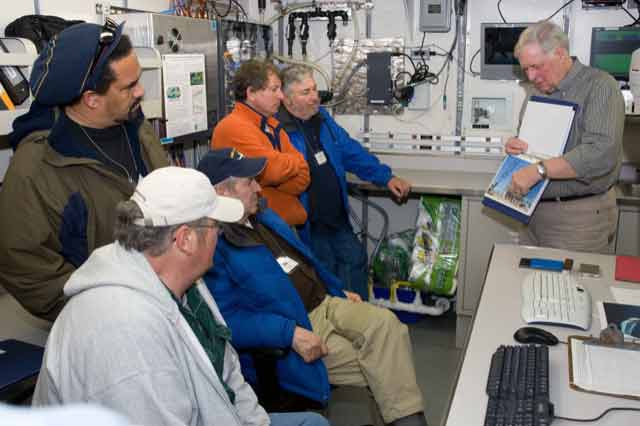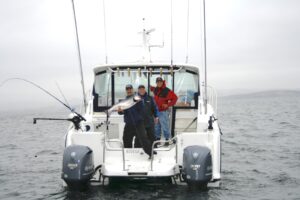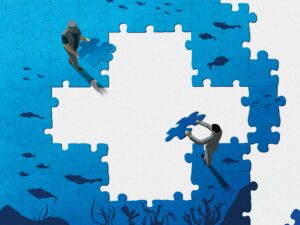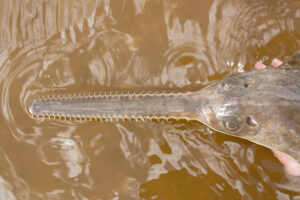
The actual date escapes me now, but it was in the early 1980s that I got involved in fisheries management. I’d been working in the recreational fishing business with Salt Water Sportsman for about 10 years and it just felt right to give something back to the resources that supported me. It also seemed appropriate to try to make recreational fishing a better experience for all fishing enthusiasts.
Somehow, I managed to get an appointment to the Massachusetts Marine Fisheries Advisory Commission (MFAC). How well I remember attending the first few meetings. Getting to know the other Commission members seemed like a reasonable task, but learning the jargon of fisheries management and the litany of acronyms that go along with it was daunting. Our government just loves the use of acronyms and way predated their current use in texting. Once the alphabet soup was digested, then getting a handle on the science that backs up fisheries management decisions was the next hurdle.
Most of the folks who work full-time in marine fisheries have backgrounds in marine biology and many have advanced degrees. So, much of what was discussed was routine for them. Some of the statistical analysis got pretty down in the weeds. A lot of questions and persistence helped to get a decent understanding of the management science process as well as the management regulations. After participating for 19 years at the state level, I had a passable understanding.
All of that learning was at least a basis for beginning to learn all over again, after I got an appointment to the New England Fisheries Management Council (NEFMC). When I first started on the Council, I got to know my UPS driver on a first name basis. The amount of material that constantly came was overwhelming and the fact that I had to learn new acronyms, regulations and processes as well did not make it any easier. Part of our introduction to the NEFMC were a series of quick overviews of all of the management pieces that fit together to make up the process. We met with the NOAA Fisheries regional office staff. We got an introduction to the Northeast Science Center and their work. Finally, we met with the NEFMC staff for an introduction to the process and a bunch of the housekeeping items. All of these were helpful, but it still took hands on experience to get comfortable participating at the front table.
What is the Marine Resources Education Program?
For many who want to get involved in fisheries management this seems like an overwhelming process. It isn’t impossible, but perception is a big influence.
Luckily, for those interested in being a part of this in a participatory or official capacity, there is now a way to learn all the ins and outs and to even participate in a mock fisheries management plan development. Just before I was appointed to the NEFMC, then Council member John Williamson and future Council member Mary Beth Tooley, both from Maine, began the process of developing the Marine Resources Education Program (MREP) for the Northeast region with the help of the Gulf of Maine Research Institute (GMRI). This program expanded to the Greater Atlantic region, which includes New England and Mid-Atlantic.
MREP has embraced the concept of “by fishermen, for fishermen.” Their efforts have tried to answer these questions:
- What information do fishermen need to effectively engage in fishery management and collaborative science?
- What valuable knowledge do fishermen bring to the table?
- How do fishermen, scientists and managers learn to work together to address fisheries issues?
How the Marine Resources Education Program Helps Anglers
This program has developed from a regional to a national training program. Starting in 2012, it has expanded to the South Atlantic, Gulf of Mexico, Caribbean, Pacific and as of this year the North Pacific Council regions. In the Greater Atlantic region there are two separate 3-day workshops — one on fisheries science and one on fisheries management. Each region tailors its programs to fit with the needs of their fishing communities and management. The Caribbean has one 3-day session for both science and management. The North Pacific has one 5-day session for both. All have the same goal of making those who take the program more effective participants in the management process.
In an effort of full disclosure, I have recently been asked to participate on the MREP Steering Committee for the Greater Atlantic region. This has allowed me to gain a lot more insight into a program that I previously thought was a real plus. For anyone who wants to understand regional and federal fisheries management, this program will give a leg up. Space is limited and the application process is comprehensive, but it is definitely worth the effort, if you want to learn and get involved. All of the information can be found at the MREP website. If you want to go directly to the application process, there is a white “apply now” link in the upper righthand corner. You will find the staff to be very helpful and if you don’t succeed with the first try, ask about getting on the list for the next program. The ball is in your court.









